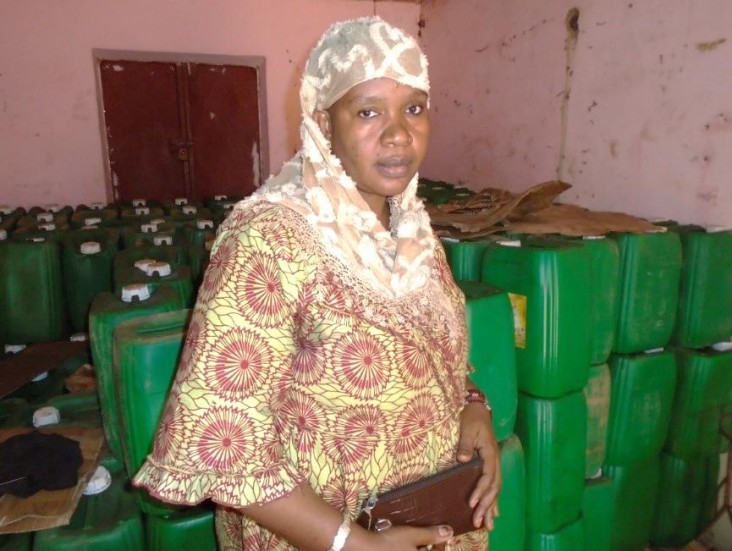Speeches Shim

“The loan enabled me to diversify my products,” says Haidara. “Today my company is selling palm oil in the market. In addition, thanks to that loan I opened two new stores,” she adds proudly.
Rokia Haidara, an entrepreneur in Mali, knows all too well the challenges that women face in starting and running a business. She founded her own company in the city of Sikasso in 2008, and like other women business owners, realized that accessing credit was difficult. By 2016, Haidara was actively looking for a financial assistance for her company, which specializes in wholesale cereals such as rice, maize and millet, wheat flour and palm oil. Through a good friend, she heard about the Feed the Future Mali Finance for Food Security and Women Entrepreneurs (FFSWE) Program.
Haidara enrolled in the program, which connects female entrepreneurs with financial management training and it wasn’t long before her newly gained knowledge and confidence was paying off. The “training helped me to build my capacity and confidence and ask for credit in a bank. In fact, the training…removed fear I had about banks. I…finally opened an account at the Bank of Africa (BOA),” explains Haidara. She continued to build her knowledge with additional trainings on simplified management and marketing of agricultural products. The FFSWE Project also helped Haidara build a company business plan.
With demand from her clients increasing, Haidara approached BOA to ask for a loan of about $72,000 to strengthen the working capital of her company. While BOA did not approve her initial loan request, Haidara didn’t give up. Following the advice of the FFSWE Project’s Investment Preparedness Specialist, she continued to make deposits and withdrawals from her BOA account and subsequently submitted a new loan application for about $18,000. This time, the bank approved the loan, repayable over a period of 12 months. While the approval came too late in the season for her to use it as she originally had planned, Haidara wisely came to an agreement with BOA to invest the loan in the palm oil side of her business. With the loan, the company bought 400 cans of 20-liter oil and 400 bags of wheat flour, and the palm oil side of the business started flourishing.
Haidara buys cereals in the city of Sikasso and in Niono (Segou Region) with her supply partners. Her company sources palm oil from Sikasso through a larger wholesaler, who imports it from the Ivory Coast. Once the raw materials are acquired, they are sold through the company’s three stores, which are located in three different markets in the city. Her customers are retailers, households and individuals.
Monthly sales nearly doubled after Haidara secured her loan, which she has continued to pay on time. Additionally, her company was able to recruit three permanent staff members. Haidara’s current ambition is to take her business national. She also plans to apply for a second loan after she finishes paying off the first. Haidara’s success is due not only to her tenacity, but also due to the knowledge and confidence FFSWE’s training instilled in her.
The five-year Feed the Future Mali Finance for Food Security and Women Entrepreneurs Program is $2.97 million program aimed at creating a more robust agricultural financial sector and empowering women business owners. The program, which started in 2015, covers the regions of Kayes, Sikasso, Mopti and the capital Bamako, and has helped 35,499 micro, small, and medium enterprises—62% of which are owned by women—by providing technical assistance.

Comment
Make a general inquiry or suggest an improvement.